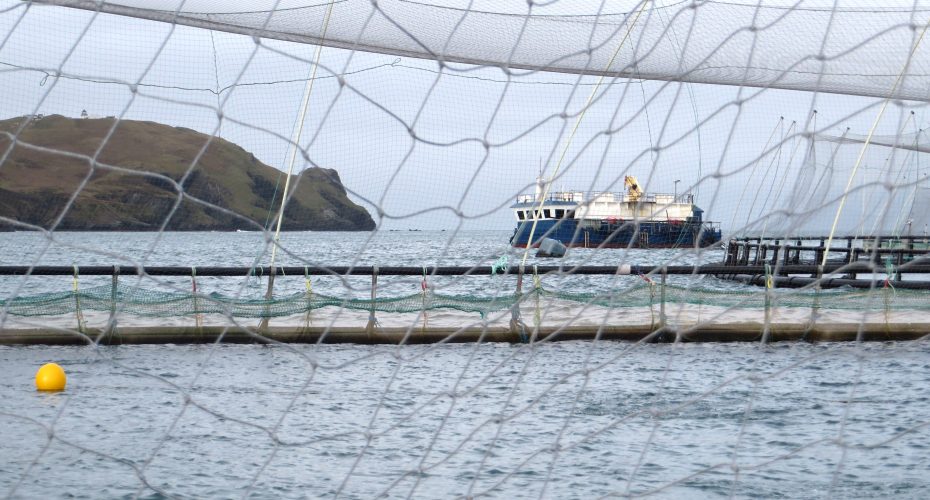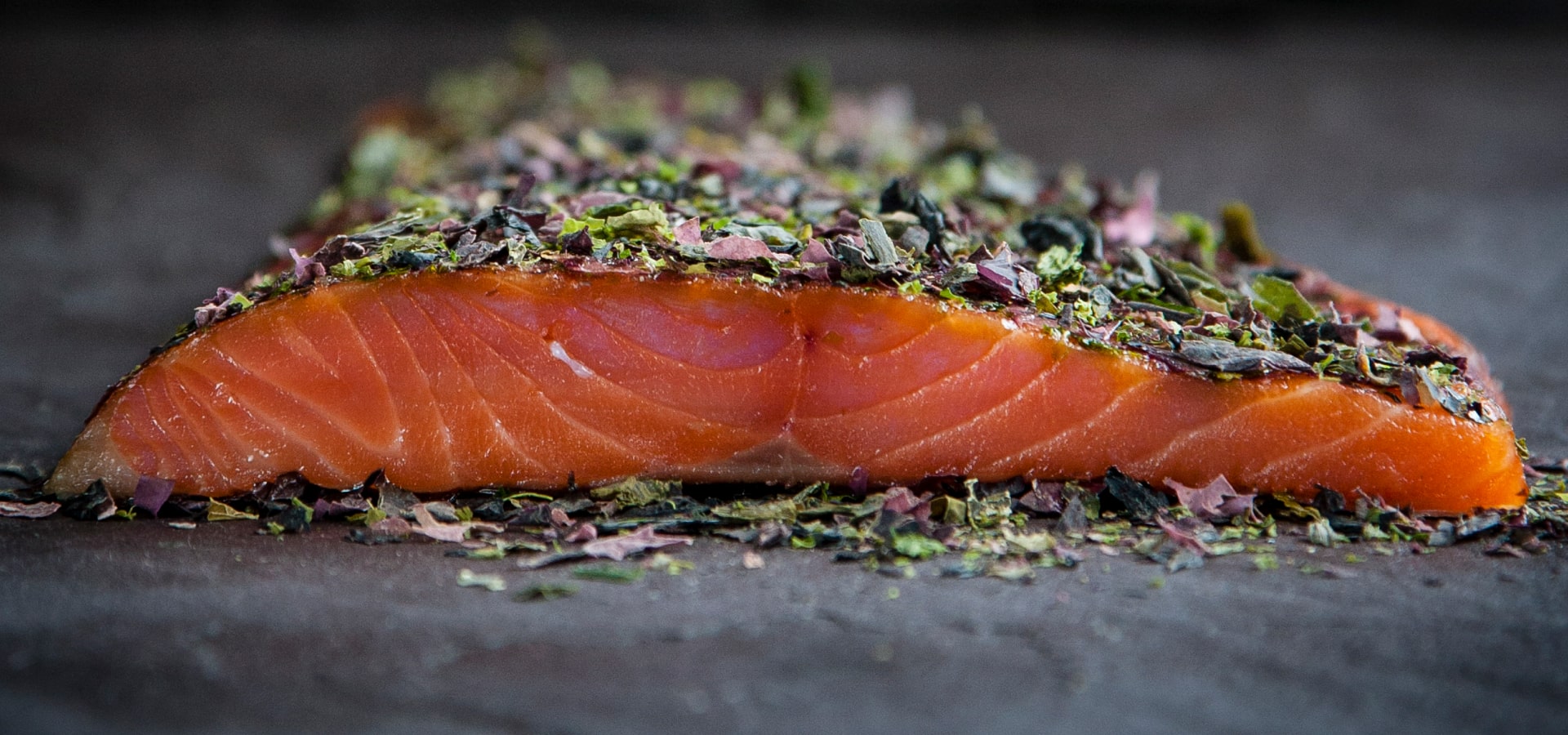On several visits to organic salmon farms in Clare Island and in the south-west of Ireland, we have gathered a lot of information on how salmon is raised in an organic way. We want to share this information with you here.
It was an invaluable first-hand experience to go out there ourselves and be able to talk to the very able crews at the sites.
Our organic salmon comes from the world’s most exposed fish farms, moored in strong cross-currents on the west coast of Ireland. We get most of our organic salmon from sites at Clare Island and the south-west of Ireland off the Iveragh Peninsula (Ring of Kerry).
In regular intervals, sites are left fallow like farmers used to do with their fields. For organic aquaculture, this is a standard procedure in-between production cycles.
The animals are transferred from the hatchery to for example the south-west sites during the fallow periods for Clare Island. The sites are in use for up to 2 years and 3 months, and then left fallow for at least six weeks.
All the sites are swept by strong tidal currents and high waves, and the water quality is rated 1A – the best there is. A build-up of parasites and pollutants is nearly impossible.
These exceptional water conditions are pivotal to the success of our organic salmon: The strong currents make the muscle texture firm, the fat content is very low.
At the end of their life, the salmon will have swum the equivalent of 14,500 miles (23,000 km) which is about the same distance that wild salmon would cover.
Organically farmed salmon are reared in large and deep cages. They allow them to follow their natural shoaling behavior and control their proximity to other salmon, in line with organic farming concepts.
The number of animals per net is greatly reduced. The salmon density in the cages is very low: in mathematical terms, there is 10 kg of salmon per cubic meter of water. This translates into 1% salmon and 99% water! So the conditions under which the salmon is farmed are very close to its wild counterparts.
The organic salmon farm sites are in such exposed areas that the naturally occurring sea lice has minimal effect on the salmon. The currents are very strong which brings a constant exchange of sea water. Clear waters minimise diseases, and medication is only used to treat health issues when they occur and at the request of qualified vets. No preemptive medication is administered.
It also means that no sediments can gather on the seabed which is good news for the environment. Environmental studies carried out have proved that there has been no effect on the sea bed.
In recent years, cleanerfish have been introduced to the aquaculture in Ireland. Our suppliers of organic salmon are using lumpfish (Cyploterus lumpus) which live in the cages. Little forests of seaweed in the cages allow them to hide and socialise.
When on work duty, they are swimming around the salmon eating the sea lice, keeping them free from parasites.
The salmon is manually fed every day. The feed consists of pellets made of natural ingredients from sustainable sources, and free from genetically modified organisms. They contain 90% marine-based feed like trimmings and fish oils (those important omega-3 oils!). The rest is made up of vegetable ingredients.
The way the salmon are fed is highly sophisticated. Each site has a barge which serves as an operating centre. From here, the pellets are piped into the cages through a device which rotates the feeding pipes leading to the different cages according to the feeding needs of the salmon.
Each cage contains three cameras with the help of which the salmon are constantly monitored on computer screens inside the barge.
This helps to establish when the salmon have had enough to eat: their swimming pattern changes and pellets fall through. When that happens, the feeding is stopped immediately, and the salmon in another cage are being fed. This prevents wastage and environmental pollution.
The salmon is raised from egg to grown fish in a traceable way. At the stage of smolt (13 months), the salmon undergoes natural changes which prepares them – so far used to freshwater – for a life in saltwater.
At the end of the smoltification, they are transferred to the cages in the sea where they stay for the next 1 year and 7 months.
The growth rate depends very much on the water temperature – the lower the temperature, the slower the growth. The salmon can be at sea for up to two years and three months.
On average, it takes three years to rear the salmon before it reaches you. When they reach the ideal size of 4.5 to 5.5 kg, they are transferred by boat to the slaughter station. The salmon is being slaughtered in a quick and humane way as not to cause any stress.

The netting of the cages is of an extremely strong material which can take bad weather and high waves. They are moored in a very safe way in the wind shadow of small islands off the west coast of Ireland.
The nets are exchanged every four to five years, but are extensively cleaned every two to four weeks. As you can see in the picture, the open top of the cages are covered by nets so that the salmon cannot escape and are at the same time protected from predators.
The pens are constantly monitored by cameras and by full-time divers who make sure that no damage goes undetected.
The organic salmon farms are certified organic which means they have undergone a strict, high-standard certification process. The organic salmon we buy in raw is fully traceable and certified by different organisations like the Irish Organic Association (IOA), Naturland (Germany), Qualité France, and Bio Suisse (Switzerland). They are also regularly audited by relevant government bodies like the Department of Marine.
For us – and most of our discerning customers – these are the most important reasons for buying organic salmon:
After learning all this we are convinced that organic salmon is the next best thing to wild salmon – actually, it is more sustainable and as good tasting as wild salmon. So eating organic salmon is a very good alternative to wild salmon.

... and get exclusive insights, news, delicious recipes and most importantly - our exclusive offers!